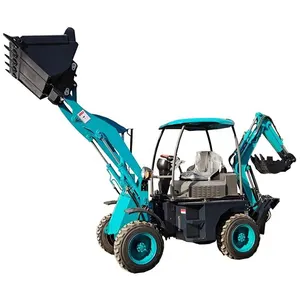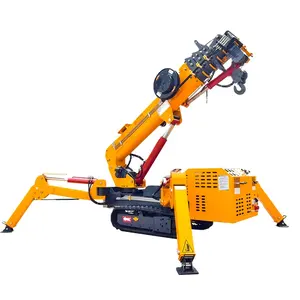Popular in your industry








Related Searches:

























Top categories
About interlock tiles machine
Types of interlock tiles machines
An interlock tiles machine is a type of construction machinery that produces interlocking tiles. These machines are available in various types, each serving its unique purpose and application. They include the following:
- Manual interlocking tile machine
It is operated by hand and requires physical labor to compress the materials and produce the interlocking tiles. The machine is manually fed with raw materials and usually does not have an automatic cutting or stacking system. The manual interlocking machine is typically used for small-scale production or for projects with limited budgets.
- Semi-automatic interlocking tile machine
The semi-automatic interlocking tile machine combines manual and automatic processes. While the raw materials are still fed into the machine manually, the pressing and forming of the tiles are automated. This reduces the amount of physical labor required and increases production efficiency compared to manual machines. However, semi-automatic machines may still require manual intervention for certain functions, such as tile cutting and stacking.
- Automatic interlocking tile machine
An automatic interlocking tile machine is fully automated, from material feeding to tile pressing, cutting, and stacking. It is designed for high-volume production and offers efficiency and consistency in output. Automatic machines may also have additional features, such as interchangeable molds for different tile designs and sizes.
- Mobile interlocking tile machine
These machines are designed to be portable and easily movable to different job sites. They may be mounted on trailers or have wheels for transportation. Mobile interlocking tile machines provide flexibility for on-site production and can be used for projects in remote locations.
- Hydraulic interlocking tile machine
Hydraulic interlocking tile machines use hydraulic pressure to compress and form the tiles. This results in a strong and uniform product. Hydraulic systems also provide precise control over the pressing process, allowing for adjustments to accommodate different materials and tile specifications.
- Pneumatic interlocking tile machine
Pneumatic interlocking tile machines utilize compressed air to power the pressing and forming mechanisms. Pneumatic systems offer fast and efficient operation, and they are well-suited for applications that require quick cycling and high-speed production.
Specification and maintenance of interlock tiles machine
Regular maintenance is crucial for the long-term performance of the interlocking tiles manufacturing machine. Here are some tips on how to maintain the machine.
- Inspect the equipment
Check the entire interlock paving tiles machine, from the body to the components. Look for any visible damage, loose parts, or abnormal wear. Attention should be paid to the molds, pallets, and pressing mechanisms to see if there are any cracks or deformations. If any problems are found, they should be dealt with promptly to prevent further damage and ensure the safety and quality of the tiles.
- Clean the machine
Regular cleaning is essential for maintaining the machine's efficiency and extending its service life. First, remove any residual concrete or debris from the surface. Next, use a damp cloth or mild detergent to clean the components of the machine and then dry them thoroughly. This way, it helps to prevent concrete buildup and reduces the risk of malfunction.
- Lubricate moving parts
Lubricating the moving parts of the interlock tiles machine is essential for reducing friction and preventing wear. Apply lubricant to the key components, such as bearings, chains, and sliding rails. Then, make sure the lubrication is evenly distributed. This process helps to ensure the smooth operation of the machine and minimize the likelihood of component failure.
- Electrical system inspection
Check the electrical system of the machine, including the wiring and control components. Ensure that all electrical connections are secure and there are no signs of damage. Perform routine inspections of the control panel and buttons. Make sure the electrical system is operating correctly and safely. If any electrical problems are found, they need to be dealt with by professionals to avoid potential safety hazards.
Overall, regular maintenance is essential for the interlocking tiles manufacturing machine. Proper maintenance not only extends the service life of the machine but also ensures the quality and efficiency of the manufactured tiles.
Scenarios
Here are some application scenarios of the interlock tiles machines:
- Industrial Parks
Interlocking tiles are commonly used in industrial parks, where heavy vehicles and equipment frequently pass. The interlocking tiles not only provide an anti-slip surface but also protect the underlying ground. Interlocking tiles produced by specially designed interlocking tile machines are often used in industrial parks and other areas with high traffic.
- Residential Areas
In residential areas, interlocking tiles can be used in driveways, walkways, and garden paths. Compared with traditional tiles, one of the benefits of interlocking tiles is their easy installation. Therefore, many homeowners will choose interlocking tiles when decorating their homes, especially those who enjoy DIY projects.
- Urban Squares
Interlocking tiles are also widely used in urban squares and pedestrian streets. The combination of different colors and patterns of interlocking tiles can create a beautiful urban landscape. Besides, interlocking tiles can be easily removed and replaced, which makes the maintenance and repair of urban squares more convenient.
- Industrial Workshops
Interlocking tiles provide a non-slip and wear-resistant flooring option for industrial workshops and factory assembly lines. With the right material, interlocking tiles can withstand the impact of heavy machinery and foot traffic. Furthermore, if the workshop needs to be expanded or the layout adjusted, the interlocking tiles can be removed and reinstalled, which is very flexible.
- Public Transportation Hubs
Interlocking tiles are commonly used flooring materials in public transportation hubs such as airports, train stations, and bus stations. They are easy to assemble and disassemble, which is convenient for future maintenance and replacement work. More importantly, they can be anti-slip and shock-absorbing, ensuring the safety of passengers in crowded places.
- Commercial Streets
The interlocking tiles can be used in commercial streets, such as pedestrian streets, shopping streets, and outdoor dining areas. They are easy to install and maintain. The unique patterns of interlocking tiles can create an attractive commercial environment, which is conducive to attracting more customers and increasing business traffic.
How to choose an interlock tiles machine
- Consider the scale of operations
When choosing an interlocking paving block making machine, it is important to consider the scale of the business' operations. This involves ascertaining the anticipated production volume and frequency. For large-scale commercial use, investing in a heavy-duty machine that can produce high volumes consistently would be the best option. Small-scale or start-up businesses may opt for more budget-friendly machines that can still meet their current demand while allowing for potential growth. Selecting a machine that aligns with the business' current needs and future growth ambitions will ensure efficiency and cost-effectiveness.
- Assess the technical specifications
When choosing an interlocking tile machine, it is important to assess the technical specifications of the machine. Businesses should consider the types of materials they intend to work with, such as concrete or clay, and select a machine that can effectively process those materials. The machine's molding technology and design options should also be considered to ensure it can produce the desired interlocking tiles. Additionally, factors such as power requirements, automation levels, and production capacities should be evaluated to choose a machine that meets the business' needs.
- Examine the machine's durability and quality
It is important to choose a machine that is constructed from durable materials and features quality components. The quality of the interlocking tiles produced by the machine depends on its construction and components, so it is important to select a machine that can consistently produce strong, well-made tiles. By choosing a machine that is built to last, businesses can minimize downtime and maintenance costs. Opting for a machine with a solid track record of performance and positive reviews from other users can provide additional peace of mind.
- Review supplier support and service
When selecting an interlock tiles machine, it is important to review the supplier's support and service offerings. Businesses should look for suppliers that provide comprehensive training and technical support to help users get up and running with the machine. Availability of spare parts and prompt service for repairs and maintenance should also be considered. A reliable supplier with strong after-sales support can help businesses address any issues quickly and keep their machine operating smoothly. Finally, it is important to consider the supplier's reputation and customer reviews to ensure a positive purchasing experience.
Q & A
Q1: What is the durability of interlocking concrete pavers?
A1: Interlocking concrete pavers are designed to last for years. When properly installed and maintained, the pavers can last for 25 to 50 years, depending on the amount and type of traffic they receive.
Q2: How should interlocking pavers be maintained?
A2: Regular maintenance is important for the longevity of interlocking pavers. This includes sweeping to remove debris, occasional rinsing with water or light pressure washing, and resealing the pavers every 2-3 years to preserve their appearance and protect against stains.
Q3: Is an interlock tile making machine a profitable business investment?
A3: Yes, investing in an interlocking tile making machine can be profitable. The profitability of the business will depend on various factors like market demand, quality of products, production capacity, and overhead costs.

















